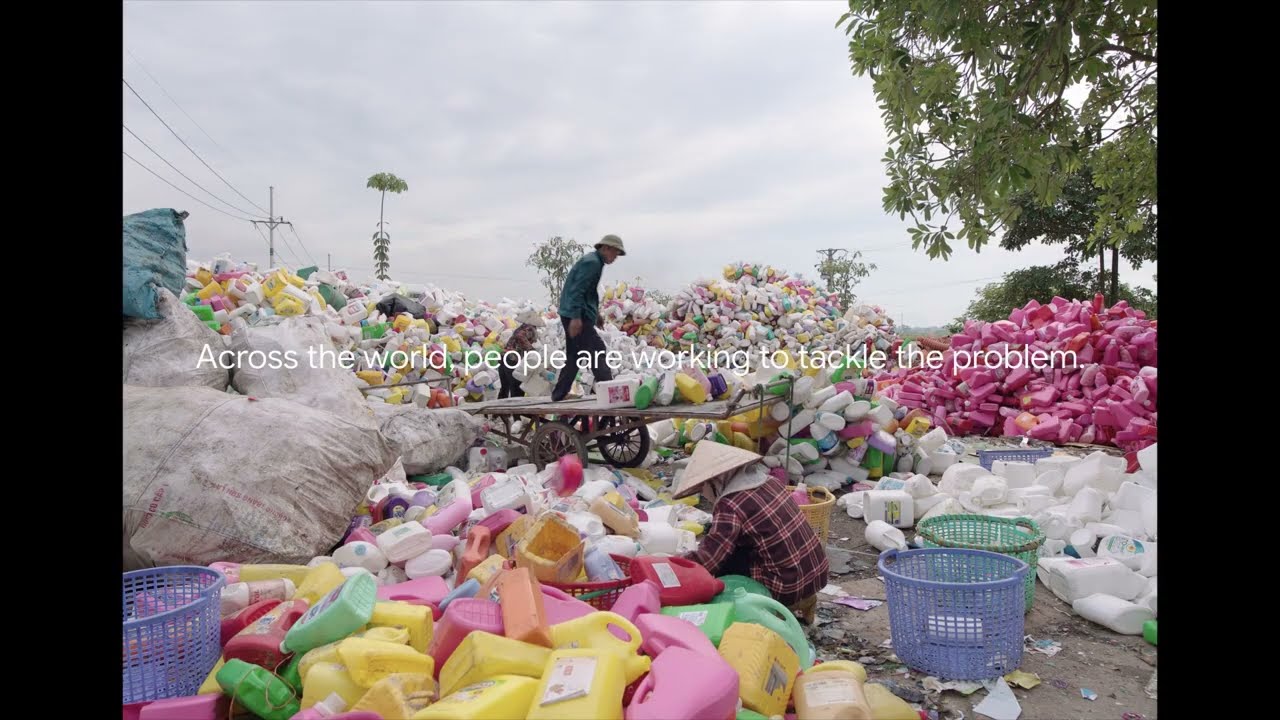The video discusses how artificial intelligence (AI) is being utilized to tackle plastic pollution by enhancing recycling processes and developing sustainable, biodegradable materials. It emphasizes the importance of collaboration between scientists, technologists, and communities to create innovative solutions for reducing plastic waste and fostering environmental conservation.
The video titled “How AI is Helping to Solve the Plastic Pollution Crisis | AlphaFold Impact Stories” explores the innovative ways artificial intelligence (AI) is being utilized to address the pressing issue of plastic pollution. It highlights the growing concern over plastic waste in oceans and landfills, emphasizing the environmental and health risks associated with plastic pollution. The video sets the stage by illustrating the scale of the problem, showcasing the staggering amounts of plastic that end up in natural ecosystems each year.
One of the key focuses of the video is the role of AI in enhancing the efficiency of recycling processes. Traditional recycling methods often struggle with sorting and processing various types of plastics. However, AI technologies, including machine learning algorithms, are being developed to improve the identification and classification of plastics, making recycling more effective. This advancement not only increases the volume of plastic that can be recycled but also reduces contamination rates, leading to higher quality recycled materials.
The video also discusses the potential of AI in developing new materials that are more sustainable and biodegradable. Researchers are leveraging AI to analyze molecular structures and predict how different materials can be engineered to break down more easily in the environment. This innovation could lead to the creation of alternatives to conventional plastics, significantly reducing the reliance on petroleum-based products and minimizing environmental impact.
Furthermore, the video highlights collaborative efforts between scientists, technologists, and environmental organizations to tackle plastic pollution. By combining AI with citizen science initiatives, communities are empowered to contribute to data collection and analysis, enhancing the understanding of plastic waste patterns. This collaborative approach fosters a sense of shared responsibility and encourages public engagement in environmental conservation efforts.
In conclusion, the video underscores the transformative potential of AI in combating plastic pollution. By improving recycling processes, developing sustainable materials, and fostering community involvement, AI is paving the way for innovative solutions to one of the most critical environmental challenges of our time. The message is clear: through technology and collaboration, there is hope for a cleaner, more sustainable future free from the burdens of plastic waste.
